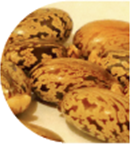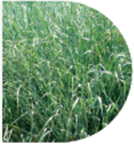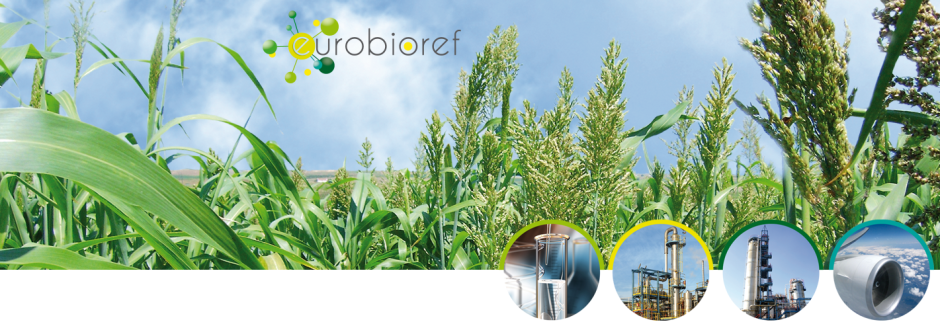A biorefinery is a multi-disciplinary and complex concept addressing at the same time the production of value-added bio-products (chemical building blocks, materials), and bioenergy (biofuels, power and heat) from biomass, within a sustainability assessment carried out along the entire value chain and life cycle.
Development of sustainable biorefineries calls for research, development and integration of innovative technologies to prove the technical and economical viability related to the entire value chain (biomass production, biomass conversion, safe recycling and/or disposal of waste, conformity of end-products to end-user requirements) of advanced biorefineries. This concept attempts to integrate the different scientific and industrial communities with the expectation to achieve a break-through beyond the "business as usual" scenario.
 DG Research has been frequently requested to work in closer coordination between its different Themes in order to better answer the emerging challenges in several research domains. The Commission launched a joint call by joining for the first time the forces of 4 different Themes of FP7 (Food, Agriculture and fisheries, biotechnology, Nanosciences, nano-technologies, materials and new production technologies, Energy, and Environment including climate change) and of 2 different DGs (RTD and ENER). Directorates E, G, K and I of DG RTD and Directorate C of DG ENER agreed to establish a joint call within the Work Programme 2009 on the development of biorefineries. Even if biorefineries were intended here not only for the production of a new generation of biofuels, the political importance and urgency of this research activity was boosted by the recent Commission political initiative on renewable energies and biofuels, within the energy/climate change package. The joint call on Biorefineries represents the first attempt to fully address the need for more integration and multidisciplinarity in the Commission's Research Work Programme, making also use of new management solutions. Moreover, for the first time several different scientific/ industrial communities were requested to work together, creating synergies and exploiting the potential richness of their different scientific knowledge and research approach. As a result, three collaborative projects are funded in order to implement the topic Sustainable Biorefineries aiming at integrated multi-feedstock and multi-product biorefineries, while one coordinating action project is additionally funded in order to exchange information and enhance synergies and cross-fertilization between projects in the field of Biorefineries. The Commission contributes with € 52 million for 4 years. 81 partners from universities, research institutes and industry in 20 countries will invest an additional € 28 million.
DG Research has been frequently requested to work in closer coordination between its different Themes in order to better answer the emerging challenges in several research domains. The Commission launched a joint call by joining for the first time the forces of 4 different Themes of FP7 (Food, Agriculture and fisheries, biotechnology, Nanosciences, nano-technologies, materials and new production technologies, Energy, and Environment including climate change) and of 2 different DGs (RTD and ENER). Directorates E, G, K and I of DG RTD and Directorate C of DG ENER agreed to establish a joint call within the Work Programme 2009 on the development of biorefineries. Even if biorefineries were intended here not only for the production of a new generation of biofuels, the political importance and urgency of this research activity was boosted by the recent Commission political initiative on renewable energies and biofuels, within the energy/climate change package. The joint call on Biorefineries represents the first attempt to fully address the need for more integration and multidisciplinarity in the Commission's Research Work Programme, making also use of new management solutions. Moreover, for the first time several different scientific/ industrial communities were requested to work together, creating synergies and exploiting the potential richness of their different scientific knowledge and research approach. As a result, three collaborative projects are funded in order to implement the topic Sustainable Biorefineries aiming at integrated multi-feedstock and multi-product biorefineries, while one coordinating action project is additionally funded in order to exchange information and enhance synergies and cross-fertilization between projects in the field of Biorefineries. The Commission contributes with € 52 million for 4 years. 81 partners from universities, research institutes and industry in 20 countries will invest an additional € 28 million.

The EUROBIOREF project (European Multilevel Integrated Biorefinery Design for Sustainable Biomass Processing) is the largest of the three collaborative projects. It is supported by € 23 million of funding from the European Commission's 7th Framework Program and additional €14.4 million from partners. The project is going to run for 4 years and will deal in a sustainable manner with the entire process of production and transformation of biomass, from fields to final commercial products including chemicals, polymers, materials and specific bio-jet fuels. It will adopt a flexible and a modular process design adapted to large but also small scale production units easier to install in various European areas. The overall efficiency of this approach aims to exceed existing pathways with specific targets of improving cost-efficiency by 30%, reducing energy consumption by 30% and producing zero waste. The impact of the project in terms of environment, social and economic benefits is important and could give a serious advantage for European bio-industry. The project includes the techno-economic evaluation of the whole integrated biorefinery, the environmental life cycle assessment in line with the requirements of the International Reference Data System (ILCD) Handbook,.and the social sustainability approach on the basis of the recently developed UNEP guidelines for social life cycle assessment of products. A commercialization plan of the project results comprising of a list of actions with associated costs and timeframe and covering all the product types and their applications obtained through the project will be developed. The project involves 28 partners from 14 different countries under the coordination of Centre National de la Recherche Scientifique, France. 57% of the consortium partners are enterprises, while the 4 SME partners of the project receive 21% from the total contribution of the European Commission.
 In conclusion, the aim of the joint call on biorefineries was achieved beyond expectations. Several other joint calls have been launched since, following its practices and pathway. The Commission responding to the Member States need for cross-thematic research has undertaken the challenge to bring together different scientific and industrial communities under a joint call on Biorefineries and to overcome internal administrative burdens for horizontal operation of its services. As a result, a limited number of large multi-disciplinary and integrated projects in the field of Biorefineries were funded, exactly as depicted in the Work Programmes. Now, it is the time for implementation in prospecting for the break-through and beyond the "business as usual" results from the side of both the scientific and industrial beneficiaries of the grant agreements.
In conclusion, the aim of the joint call on biorefineries was achieved beyond expectations. Several other joint calls have been launched since, following its practices and pathway. The Commission responding to the Member States need for cross-thematic research has undertaken the challenge to bring together different scientific and industrial communities under a joint call on Biorefineries and to overcome internal administrative burdens for horizontal operation of its services. As a result, a limited number of large multi-disciplinary and integrated projects in the field of Biorefineries were funded, exactly as depicted in the Work Programmes. Now, it is the time for implementation in prospecting for the break-through and beyond the "business as usual" results from the side of both the scientific and industrial beneficiaries of the grant agreements.
For the task force
Dr Maria GEORGIADOU

Leading Project Officer
European Commission
DG Research - Directorate K Energy
New and Renewable Energy Sources Unit
e-mail: This email address is being protected from spambots. You need JavaScript enabled to view it.

